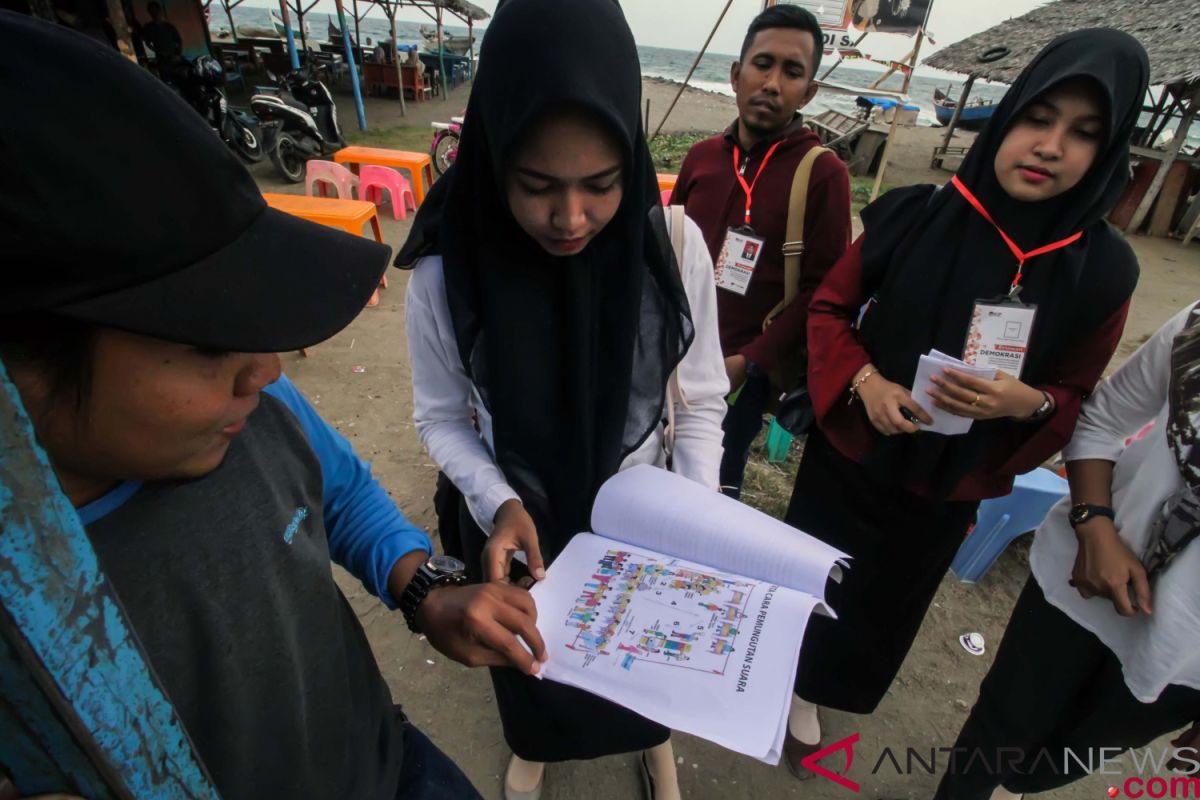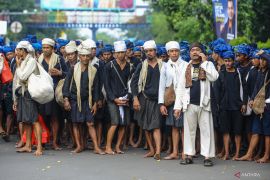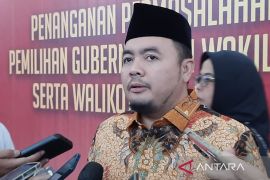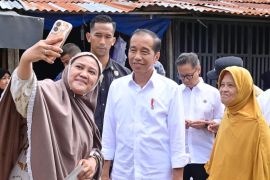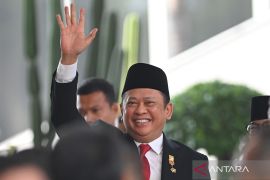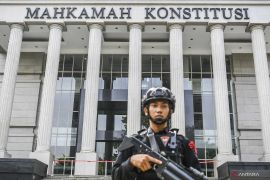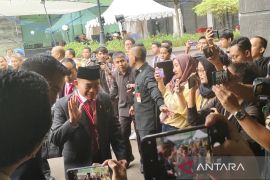These young voters, a generation that is well-acquainted with information and communication technology, has witnessed that social media is currently rife with political lies.
"We are disappointed. Presidential candidates have failed to impart sound education on politics. Instead, they spread hostility and blasphemy. Thus, we cannot see clearly what program they have," a spokesperson of the group Saifa El Faruqi remarked.
The number of young voters in the 2019 election, scheduled on Apr 17, is expected to reach 35 to 40 percent, or some 70-80 million of the total 193 million eligible voters. Hence, their participation would hold significance in determining the outcome of the election.
The group claimed to not want to promote abstention but was seeking a better political climate in Indonesia ahead of the general election. However, citing a researcher of the Indonesian Institute Fadel Basrianto, the group has played passive politics to pressure political parties and candidates into delivering substantial political education to the public.
If such a stance is adopted by every millennial, it could contribute to a significant change, as the number of millennials on the illegible voter list of the 2019 elections reaches 40 percent, he stated.
Executive Director of the Political Literacy Institute Gun Gun Heryanto stated that younger voters have a tendency to abstain from exercising their voting rights in the 2019 elections.
In fact, the abstention rate has shown an increasing trend since the 1999 general elections, with nearly 30 percent of the registered voters abstaining in the 2014 presidential election and younger voters accounting for majority of the abstentions.
These millennial voters, aged between 17-40 years old, are apolitical, or have little interest in politics.
A survey about millennials` political orientation conducted by the Centre for Strategic and International Studies (CSIS) in 2017 found that only 2.3 percent of them had interest in politics, while personal economic issues, such as employment, ranked first among the generation`s greatest concerns.
A survey conducted by the IDN Research Institute and Alvara Research Center indicated that only 23.4 percent of the 1,400 millennial respondents followed political news or kept abreast of political issues.
Any uproar over politics, corruption, intricate governance, and quarrel between political rivals will only further deplete their interest in politics.
Heryanto opined that presidential and vice presidential candidates would need to step up their efforts to encourage the millennial group to cast their votes in the election.
"Hope is the key word. They need to see whether this election is beneficial for them or not. If not, they won`t participate," he stated.
In addition, he said, presidential candidates should build equal and reciprocal communication to approach the group.
Right to abstain
The right to vote or not has a legal basis. "Abstention is not a crime," Director of the Legal Aid Institute (LBH) Arief Maulana remarked, citing article 28 of the country`s Constitution and Law No. 39 of 1999 on human rights.
Maulana remarked that in several countries, including Indonesia, people had decided to abstain to express their disappointment over the implementation of a democratic system, where violation of human rights and citizens` rights continues to occur, and corruption is rampant.
Arief cited the 2018 Democracy Index released by the Economist Intelligence Unit (EIU) in which the most notable decline occurred in Indonesia, which fell from 48th place to 68th.
"It is a sharp downgrade and based on the research, it is because the public is not satisfied with the current democracy system," he noted.
However, it would be a disadvantage for eligible voters if they decided to abstain.
Former chief of the Constitution Court Mahfud MD stated that those who did not vote in the election would lose the opportunity to pick a better candidate.
Mahfud said abstainers are usually looking to have a perfect candidate. As they cannot find one, they choose to not cast their votes in the election.
"I think it is a loss for abstainers. Whether they vote or not, a leader must be born," he said, assuring that he will vote in the 2019 election.
"I will vote the best candidate. I will vote the best candidate among the worst," he added.
Editing by Rahmad Nasution
Editor: Sri Haryati
Copyright © ANTARA 2019
